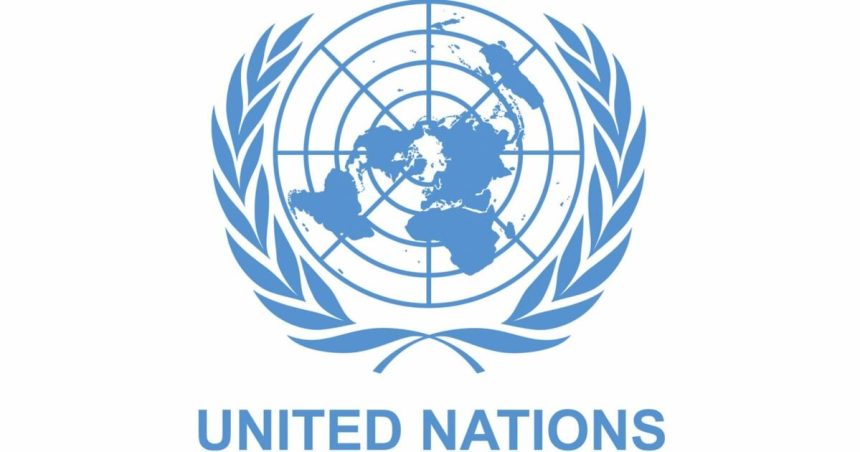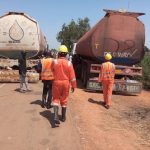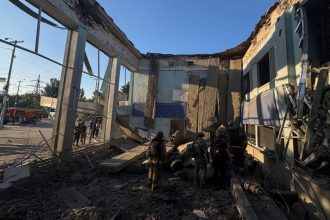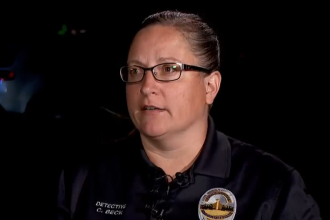The United Nations has reaffirmed that gender equality is vital to achieving lasting peace as it marks 25 years of the Women, Peace and Security (WPS) Agenda, established through Security Council Resolution 1325.
“The resolution was a real game-changer,” said Laura Flores, Americas Division Director at the UN Department of Political and Peacebuilding Affairs (DPPA), in an interview with UN News.
Flores said the resolution changed how the world viewed women’s roles in peacebuilding.
A release dated October 31, 2025, obtained from the UN website by our correspondent on Saturday revealed this.
“People finally started recognising that women aren’t just affected by conflict, they’re also key to resolving it.
“It’s about making sure women have a seat at the table when peace is being negotiated, and that their voices are heard in decisions that shape recovery and security,” she said.
According to the UN Secretary-General’s report on Women, Peace and Security, nearly 700 million women lived within 50 kilometres of deadly conflict last year.
The report also recorded an “87 per cent increase in sexual violence over the past two years, while nine out of ten peace processes excluded women negotiators.”
Despite these figures, Flores noted signs of progress in the Americas.
“The region had the highest average of women in parliament globally, with Caribbean countries averaging 41 per cent, South America 31.9 per cent, and Central America 30.8 per cent,” she said.
She added that countries such as Mexico, Chile, and Colombia have adopted foreign policies promoting gender equality in diplomacy, peacebuilding, and development.
“These policies are still new, and they’ll need strong support and coordination to really take root, but they’re a sign of progress,” she further said.
The UN has supported countries in implementing the Women, Peace and Security Agenda through various initiatives.
In Chile, it assisted a presidential commission addressing the root causes of conflict affecting Indigenous communities, focusing on challenges faced by Mapuche women.
In Colombia, DPPA helped develop the country’s first national action plan aligned with Resolution 1325, while in Haiti, the department works with UN Women to support survivors of gender-based violence.
Flores, however, described gender-based violence in the region as “alarmingly high,” noting that at least 11 women are murdered every day in Latin America.
She added that political violence and digital harassment against women leaders are rising, while participation in politics remains low in some countries.
“The region has momentum, but it needs protection, investment, and political will to keep moving forward,” she added.
Flores also highlighted the role of Indigenous women in promoting peace and democracy.
“Indigenous women are often hit hardest by conflict, but they’re also incredibly resilient and central to peace efforts,” she said.
Among those women is Otilia Lux de Cotí, an Indigenous leader and the only Maya K’iche’ woman to have served as a minister in Guatemala’s government.
“I am the daughter of Guatemala’s war,” Lux said, referring to the country’s three-decade civil conflict that claimed more than 200,000 lives.
Since the signing of the peace agreement in 1996, she has worked to document violence against women and Indigenous Peoples.
Flores said Indigenous women also played a crucial role during Guatemala’s 2023 elections, when the peaceful transfer of power was threatened.
During that time, Indigenous communities took to the streets, lifting varas—traditional staffs symbolizing ancestral authority—in defence of their votes.
“More recently, Indigenous women authorities have played pivotal roles in defending democracy, particularly during the 2023 elections, when the peaceful transfer of power was at risk,” she said.
Lux described the action as a collective decision.
“The decision to act did not happen overnight; it followed a long process of discussion and consultation within our communities. We call this process Yacataj in K’iche’ – a collective awakening of consciousness.
“That moment, when our ancestral symbols were raised, was not simply a protest; it was an act of democratic participation seen through Indigenous eyes,” Lux said.
As the UN commemorates 25 years of the Women, Peace and Security Agenda, Flores said the contributions of women like Lux embody the spirit of Resolution 1325, which calls for increased representation of women in decision-making for peace and security.
“The region’s women are showing that achieving peace means refusing to stay silent,” she said.









